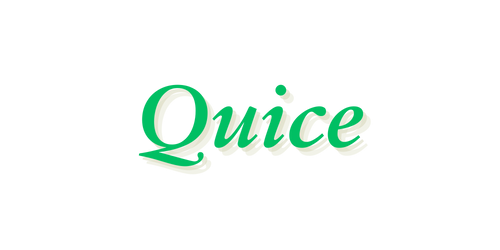In an increasingly more interconnected international, the function of a translator, or “прводач” in Macedonian, is extra vital than ever. Translators bridge language gaps, allowing communique, cultural alternate, and information throughout borders. Whether it is translating a unique, a technical manual, or a legal document, their work ensures that language differences do no longer grow to be boundaries.
Historical Background of Translation
The art of translation dates lower back lots of years. Early forms of translation may be traced to historical civilizations inclusive of Mesopotamia, wherein scribes could translate Sumerian texts into Akkadian. Over time, translation has developed substantially, prompted through cultural, social, and technological changes. The translation of non secular texts, including the Bible and the Quran, played a pivotal role in spreading ideas and information across extraordinary regions and languages.
Role of Translators
Translators may be categorized as both expert or beginner. Professional translators are often licensed and feature undergone rigorous education to hone their abilities. They work on a huge range of documents, from literary works to legal contracts, and their know-how ensures accuracy and cultural sensitivity. On the opposite hand, beginner translators might have interaction in translation as a interest or facet job, often lacking the formal training however still contributing to the sector.
Responsibilities and Skills Required
Translators should possess a deep understanding of both the supply and goal languages. This consists of now not only linguistic skillability but also cultural knowledge. They want to be meticulous, element-orientated, and capable of adapting the tone and style of the original text to the target language. Effective studies abilities and a robust command of specialised vocabulary are also critical, specifically for technical and prison translations.
Types of Translation
Literary Translation
Literary translation involves translating works of fiction, poetry, and drama. It requires a innovative method to seize the essence, style, and nuances of the unique text while making it reachable to the audience.
Technical Translation
Technical translation makes a speciality of translating manuals, consumer guides, and different technical documents. Accuracy and clarity are paramount, as these texts regularly comprise complicated terminology and commands.
Legal Translation
Legal translation deals with translating legal documents along with contracts, courtroom judgments, and statutes. A thorough know-how of felony terminology and the legal systems of each the source and target languages is important.
Medical Translation
Medical translation includes translating medical statistics, research papers, and pharmaceutical data. Precision is important to make sure the protection and well-being of sufferers.
Website and Software Localization
Localization is the process of adapting web sites and software program for exceptional languages and cultures. This goes beyond mere translation, encompassing cultural adaptation to ensure the content material is applicable and user-pleasant in the target marketplace.
Importance of Translation in Global Communication
Translation performs a important function in worldwide communique via bridging language limitations. It enables people and groups to talk efficaciously, fostering worldwide collaboration and knowledge. By making facts handy in a couple of languages, translators help sell inclusivity and diversity.
Enhancing Cultural Exchange
Through translation, people benefit get entry to to literature, films, and different cultural products from round the arena. This alternate enriches our expertise of different cultures and fosters a feel of world network.
The Process of Translation
The translation technique commonly entails numerous degrees:
Initial Reading and Comprehension
Before translating, the translator ought to thoroughly recognize the source text. This includes analyzing and reading the content to grasp its which means, tone, and purpose.
Drafting the Translation
In this degree, the translator creates a primary draft of the interpretation. The focus is on moving the meaning of the unique text to the target language at the same time as retaining the style and tone.
Review and Revision
After the preliminary draft, the interpretation undergoes a assessment and revision process. This step ensures accuracy, consistency, and fluency. It may also involve a couple of revisions and consultations with professionals within the difficulty count.
Tools and Technologies in Translation
Traditional Tools
Historically, translators depended on dictionaries, thesauruses, and reference books. These gear helped them understand the nuances of various languages and locate appropriate equivalents for phrases and terms.
Modern Translation Software
Today, translators use sophisticated software equipment that help with terminology control, translation reminiscence, and undertaking control. These equipment streamline the translation system and decorate productivity.
Machine Translation
Machine translation, powered with the aid of AI and system mastering, gives automated translation services. While it has progressed extensively, it nevertheless can not match the quality and accuracy of human translation, mainly for complex and nuanced texts.
Challenges Faced by Translators
Linguistic Nuances
Languages are rich in idioms, expressions, and cultural references that can be tough to translate appropriately. A deep information of each languages is essential to capture those nuances.
Cultural Context
Translators must be culturally aware to avoid misunderstandings and ensure that the translated textual content resonates with the target market. This involves adapting references, idioms, and cultural norms as it should be.
Technical Terminology
In fields consisting of medicinal drug, law, and technology, translators should grasp specialised terminology. This requires non-stop gaining knowledge of and staying updated with the latest tendencies in their location of know-how.
Qualities of a Good Translator
Language Proficiency
A desirable translator ought to be fluent in both the supply and goal languages. This includes a deep knowledge of grammar, syntax, and vocabulary.
Cultural Knowledge
Cultural sensitivity is vital for effective translation. Translators should be privy to cultural differences and nuances to ensure the translated textual content is appropriate and respectful.
Attention to Detail
Accuracy is paramount in translation. A proper translator pays close interest to element, ensuring that each aspect of the source text is correctly represented inside the translation.
Training and Education for Translators
Academic Programs
Many universities provide degree packages in translation research. These applications provide complete education in translation techniques, linguistics, and cultural studies.
Certification and Professional Development
Professional certification, consisting of the ones presented with the aid of the American Translators Association (ATA) or the Chartered Institute of Linguists (CIOL), can enhance a translator’s credibility and profession prospects. Ongoing expert development is likewise crucial to live modern-day with enterprise tendencies and advancements.
Translation in Different Industries
Translation in Business
Businesses depend on translators to extend their reach to global markets. This consists of translating advertising substances, web sites, and product documentation to cater to diverse audiences.
Translation in Entertainment
The amusement enterprise relies upon on translators for subtitling, dubbing, and translating scripts. This lets in films, TV indicates, and books to be loved by audiences global.
Translation in Diplomacy
In diplomacy, accurate translation is crucial for worldwide relations. Translators work on treaties, agreements, and diplomatic communications to make certain clear and effective communication between nations.
Ethics in Translation
Confidentiality
Translators regularly take care of sensitive facts. Maintaining confidentiality is important to guard the privacy and pursuits of customers.
Accuracy and Fidelity to the Source Text
Ethical translators attempt for accuracy and fidelity to the supply textual content. This means conveying the authentic meaning and cause without adding, omitting, or altering data.
Future Trends in Translation
Advancements in AI and Machine Learning
AI and device learning are revolutionizing the interpretation industry. These technologies can manage huge volumes of textual content quick and offer real-time translation offerings. However, human oversight is still needed to ensure exceptional and accuracy.
The Evolving Role of Human Translators
Despite technological improvements, the call for for human translators remains sturdy. Their potential to understand context, nuance, and cultural subtleties makes them irreplaceable for awesome translations.
Case Studies of Notable Translations
Famous Translated Works
Some translations have had a profound impact on literature and lifestyle. For instance, the English translation of “One Hundred Years of Solitude” with the aid of Gabriel García Márquez introduced Latin American literature to a global audience.
Impact of These Translations
These translations now not handiest brought readers to new cultures and perspectives however also motivated literary patterns and tendencies international.
Conclusion
In conclusion, the position of the translator, or “прводач,” is imperative in our globalized global. Translators allow communication, foster cultural alternate, and bridge language barriers. Despite the challenges they face, their work is essential for ensuring that know-how, thoughts, and tales can be shared across specific languages and cultures. As technology continues to evolve, the collaboration between human translators and AI will form the destiny of translation, improving its performance even as preserving its pleasant.
FAQs
What makes an awesome translation?
A suitable translation appropriately conveys the meaning, tone, and style of the original textual content even as making it comprehensible and tasty for the target market. It requires linguistic skillability, cultural understanding, and attention to element.
How lengthy does it take to end up a expert translator?
Becoming a expert translator can take several years. It generally includes obtaining a applicable diploma, gaining experience thru internships or freelance work, and reaching professional certification.
Can gadget translation replace human translators?
While gadget translation has advanced extensively, it can’t absolutely replace human translators. Human translators convey a deep expertise of context, nuance, and cultural subtleties that machines presently cannot mirror.
What are the most hard languages to translate?
Languages with complex grammar, rich idiomatic expressions, and great cultural variations may be specially difficult to translate. Examples include Japanese, Chinese, and Arabic.
How can one ensure the first-rate of a translation?
Ensuring the excellent of a translation includes more than one steps: thorough know-how of the supply text, cautious drafting, rigorous evaluate and revision, and, if feasible, collaboration with issue rely specialists.

